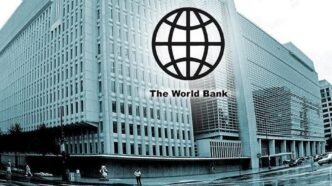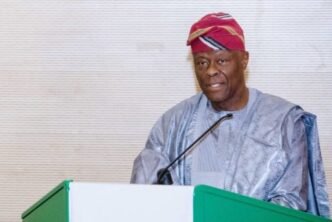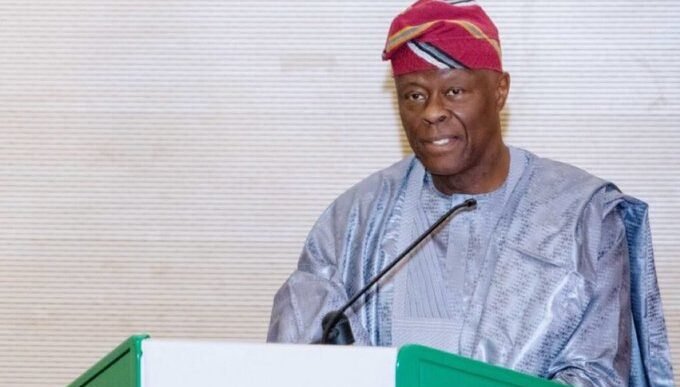The World Bank is set to approve two major loans totalling $750 million for Nigeria on Tuesday, September 30, 2025, in a development that underscores the international lender’s continuing financial and policy support for Africa’s largest economy. According to documents published on the World Bank’s official website, the funding will be directed toward strengthening health security systems and expanding climate-resilient digital infrastructure in the country.
The funding package consists of two components: $500 million earmarked for the Building Resilient Digital Infrastructure for Growth in Nigeria (BRIDGE) project, and $250 million under the Health Security Programme in Western and Central Africa, Nigeria – Phase II. Together, the initiatives aim to address Nigeria’s persistent challenges in health care delivery and technological infrastructure, while also enhancing the country’s resilience against climate change impacts and future public health crises.
Details of the Loan Package
The larger portion of the funding, $500 million, will support the BRIDGE project. This initiative is designed to expand Nigeria’s digital backbone by increasing access to high-quality, affordable, and climate-resilient broadband infrastructure. The project aligns with Nigeria’s Digital Economy Policy and Strategy (2020–2030), which seeks to diversify the economy beyond oil, create jobs, and empower youth through technology-driven opportunities.
Specifically, the BRIDGE project is expected to target underserved communities across the country, particularly in rural areas where internet penetration remains low. By financing the rollout of infrastructure such as fiber optic networks, data centers, and last-mile connectivity solutions, the World Bank hopes to narrow Nigeria’s digital divide, promote inclusive economic growth, and build resilience in the face of climate vulnerabilities.
The second component of the loan, worth $250 million, will support the Health Security Programme in Western and Central Africa, with Nigeria as one of its key beneficiaries. This phase of the program is aimed at bolstering national and regional systems for preventing, detecting, and responding to public health threats. It will build on lessons learned from the COVID-19 pandemic, Ebola outbreaks in West Africa, and other health emergencies that have exposed the weaknesses in Nigeria’s healthcare system.
According to the World Bank documents, the health security project will focus on strengthening disease surveillance systems, improving laboratory capacity, upgrading emergency response mechanisms, and expanding access to essential health services. Additionally, it will contribute to regional cooperation, ensuring that Nigeria can both benefit from and contribute to collective health security across West and Central Africa.
Why These Loans Matter
Nigeria, with its population of over 220 million people, is grappling with overlapping crises in health, infrastructure, and economic development. Despite being Africa’s largest economy, the country has one of the lowest healthcare spending rates per capita and continues to face severe shortages in medical personnel, equipment, and facilities. Public health threats—from cholera and Lassa fever to the persistent risk of pandemics—have often overwhelmed existing systems.
Similarly, Nigeria’s digital infrastructure remains uneven, with urban centers like Lagos and Abuja enjoying relatively strong connectivity, while rural areas lag far behind. According to data from the Nigerian Communications Commission (NCC), internet penetration in rural communities is below 40 percent, creating a significant barrier to inclusive development. Reliable digital infrastructure is not only vital for education, healthcare, and governance but also for enabling businesses to thrive in an increasingly interconnected global economy.
The World Bank’s dual-focus funding recognizes the interdependence of health and technology. By bolstering healthcare capacity, Nigeria can better protect its citizens from crises that destabilize livelihoods and economies. By investing in digital infrastructure, the country positions itself for long-term economic transformation, enabling innovation in areas such as e-health, fintech, digital learning, and e-governance.
Alignment with Nigeria’s National Priorities
The Nigerian government has long sought external support to bridge gaps in funding for critical infrastructure and healthcare. The BRIDGE project dovetails with President Bola Tinubu’s administration’s stated ambition to drive economic diversification through technology and digital services. The government has repeatedly emphasized that digital transformation is central to achieving sustainable growth, reducing unemployment, and fostering entrepreneurship.
On the health front, Nigeria has committed to achieving Universal Health Coverage (UHC) by 2030, in line with the United Nations Sustainable Development Goals (SDGs). The World Bank loan for health security will provide crucial resources to address systemic weaknesses and build resilience against both endemic and emerging diseases. By strengthening surveillance and response systems, Nigeria will be better equipped to prevent outbreaks from escalating into national or regional emergencies.
Global and Regional Context
The World Bank’s intervention in Nigeria also fits into a broader regional strategy. The Health Security Programme is a multi-country initiative that seeks to enhance regional cooperation in managing cross-border health threats. For Nigeria, which shares porous borders with several West African nations, cooperation is particularly critical. Outbreaks like Ebola and COVID-19 demonstrated how quickly diseases can spread across borders, underscoring the importance of collective readiness.
Similarly, the BRIDGE project reflects global concerns about digital inequality. The World Bank has repeatedly highlighted that digital infrastructure is a cornerstone of economic resilience, especially in the face of climate change. Climate-resilient networks and data systems can improve disaster preparedness, support agricultural innovation, and provide reliable platforms for e-learning during disruptions such as pandemics or natural disasters.
Potential Economic Impact
Economists argue that these loans could have significant medium- and long-term impacts on Nigeria’s economy. By improving digital connectivity, Nigeria stands to attract foreign investment, spur job creation in the tech sector, and enable small and medium-sized enterprises (SMEs) to participate in digital markets. Enhanced digital infrastructure could also improve public service delivery, from online government portals to telemedicine platforms, thereby reducing inefficiencies and corruption.
On the healthcare side, stronger health security systems reduce the risk of economic shocks caused by epidemics. During the COVID-19 pandemic, Nigeria suffered losses running into billions of dollars as trade slowed, businesses shuttered, and healthcare costs surged. Building a resilient health system is therefore not just a social priority but also an economic necessity.
Concerns About Debt Sustainability
Despite the clear benefits of the loans, concerns about Nigeria’s rising debt burden remain. As of mid-2025, Nigeria’s public debt stands at over ₦121 trillion, with external debt accounting for a significant share. Critics warn that while concessional loans from institutions like the World Bank often carry lower interest rates and longer repayment periods than commercial borrowing, the cumulative effect of frequent borrowing can strain fiscal sustainability.
Analysts have urged the Nigerian government to ensure that the loans are deployed efficiently and transparently, with measurable outcomes in both the health and digital sectors. Mismanagement, corruption, or lack of proper oversight could undermine the intended benefits and saddle the country with debt without corresponding development gains.
What Comes Next
The World Bank’s board is expected to give final approval for the loans on September 30, 2025. Following approval, the Nigerian government will be required to meet specific implementation milestones and accountability measures. Both projects are expected to run over several years, with progress reviews conducted periodically by the World Bank and local stakeholders.
If successfully executed, the $750 million package could represent a turning point in Nigeria’s development trajectory, enabling the country to simultaneously address urgent health challenges and lay the groundwork for a digital future. For a nation often described as being at a crossroads, the initiative offers both an opportunity and a test: an opportunity to leap forward in health and technology, and a test of the government’s ability to manage resources responsibly for the benefit of its people.
Conclusion
The World Bank’s planned approval of $750 million in loans for Nigeria highlights the urgent need to strengthen health security and expand climate-resilient digital infrastructure. With $500 million allocated to the BRIDGE project and $250 million directed toward the Health Security Programme, the funding package reflects both national priorities and global development goals. While concerns about debt sustainability persist, the potential benefits for Nigeria’s economy, healthcare system, and digital future are substantial.
As the September 30 approval date approaches, all eyes will be on how Nigeria intends to implement these projects. Success will require political will, institutional transparency, and sustained commitment. Ultimately, the loans could become a catalyst for transformation, helping Nigeria build resilience in a world where health crises and digital disruption increasingly define the global landscape.














